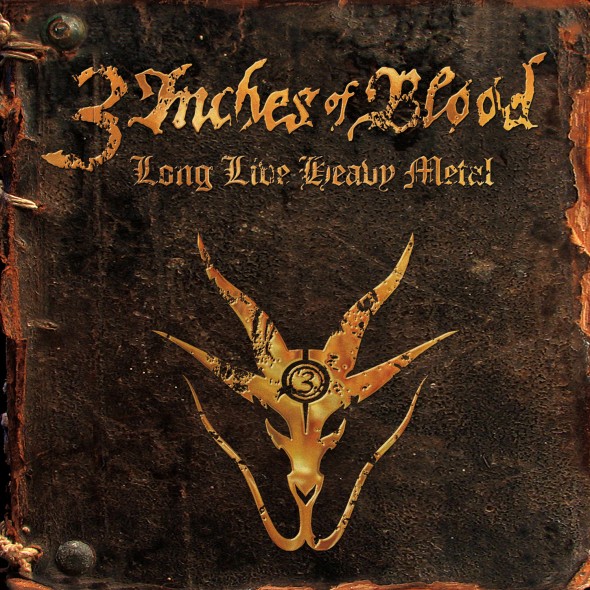By Tate Bengtson
Savatage may be on indefinite hiatus, but frontman Jon Oliva has not allowed his productivity to abate one iota. If anything, it has increased. While Jon’s work in Trans-Siberian Orchestra elaborates Savatage’s symphonic predilections, Jon Oliva’s Pain picks up on the hard-edged aspects of Savatage. Jon Oliva’s Pain has cranked out an album every two years since 2004. Festival, the fourth album to date, continues the biennial release schedule.
What makes Jon Oliva’s Pain special is its ability to take on a different theme with each album and concoct songs that bring that theme to life. Thus we see, from one album to the next, shifts in approach to comport with the chosen theme. From the aggression of Maniacal Renderings to the risk-taking diversity of Global Warning, Jon Oliva’s Pain has balanced theme and musicianship with unusually consistent success. Festival, sporting a cover portraying a ghoul inviting a group of normal-looking people into a run-down carnival (one onlooker on the back of the cover holds up an admission ticket reading “Ride of Death”), sets the tone. Coincidentally, the cover also reveals that ghouls do not look very different from carnies.
Festival is not far removed from Savatage’s (likely) final album, Poets & Madmen. Inclined to a middling pace, the focus is on weighty, bludgeoning riffs wrapped in grandiosity and drama. The heavier tracks tend to be straightforward (but by no means simplistic) and are counterbalanced by more epic constructs that embrace a wider array of moods and tempos. A ballad (“Now”) and a nonconforming track (“Looking for Nothing”) round out the album. However, what makes Festival unique is the dark tone of many of its songs.
After the prog-on-steroids opener “Lies” impresses right out of the gate, second track “Death Rides a Black Horse” gallops to the forefront. The latter’s infectious chorus, urgent drum pattern and heavy riff prove that the elder statesman Oliva still has the magic touch after all these years, even if it manifests itself a little more rarely these days. The band members behind Oliva are no slouches either. On “Death Rides a Black Horse,” axeslinger Matt Laporte lays down an expressive solo that highlights the chemistry of the band as a whole. Unlike so many bands, for which conceiving and then integrating a guitar solo into a song is little more than an afterthought, Laporte’s lead guitar work on this track exemplifies how and why a solo should exist: as a vital dimension of the song’s expression. While the rest of the album does not match the quality of the pair of opening tracks, Festival remains fairly potent for the course of its fifty-five minutes.
Nor is Oliva lacking the ambition that characterized much of his middle and later work in Savatage. Festival is not pure adrenalized aggression; Oliva aspires to something grander. The man still has a taste for the epic and is not afraid of a dalliance with the occasional ballad. Such tracks are inherently higher risk and the experiments do not always pay off. “Afterglow” is a track resplendent in layered complexity and lush detail that harks to Savatage’s Wake of Magellan. Unfortunately, as a song it is occasionally tedious and even unfocused (the jazz-tinged instrumental section that concludes the track, while interesting in itself, is utterly baffling). At seven and a half minutes, “Winter Haven” is a bloated and ponderous track unable to support the weight of its lofty purpose. Much better is album closer, the lamentation “Now,” in which a meditation on mourning possesses a maturity that belies the remarkable fact that Oliva conceived the seeds of the song when he was a mere 18 years old.
Oliva tosses a curve ball with sixth track “Looking for Nothing.” As its gentle guitar lick and saccharine vocal melody slip into a yearning pop chorus spattered with a few psychedelic tracers, this tune sounds as if it could have been an outtake from Paul McCartney’s Flaming Pie album. This excursion proves to be a temporary respite before the scorching “The Evil Within” rushes forward, competing with “Death Rides a Black Horse” as the most aggressive track on the album. The song does prove to be rather infectious despite getting ensnared in a ham-fisted attempt at creating a spooky instrumental midsection (replete with a cheesy keyboard line torn out of a 1980s horror flick).
While Festival may not be outstanding, it is a solid and occasionally impressive piece of work from Jon Oliva, as much for his songwriting as for the chemistry of the team behind him.
(AFM)
Rating: 7


